Why are gender considerations important for RE jobs?
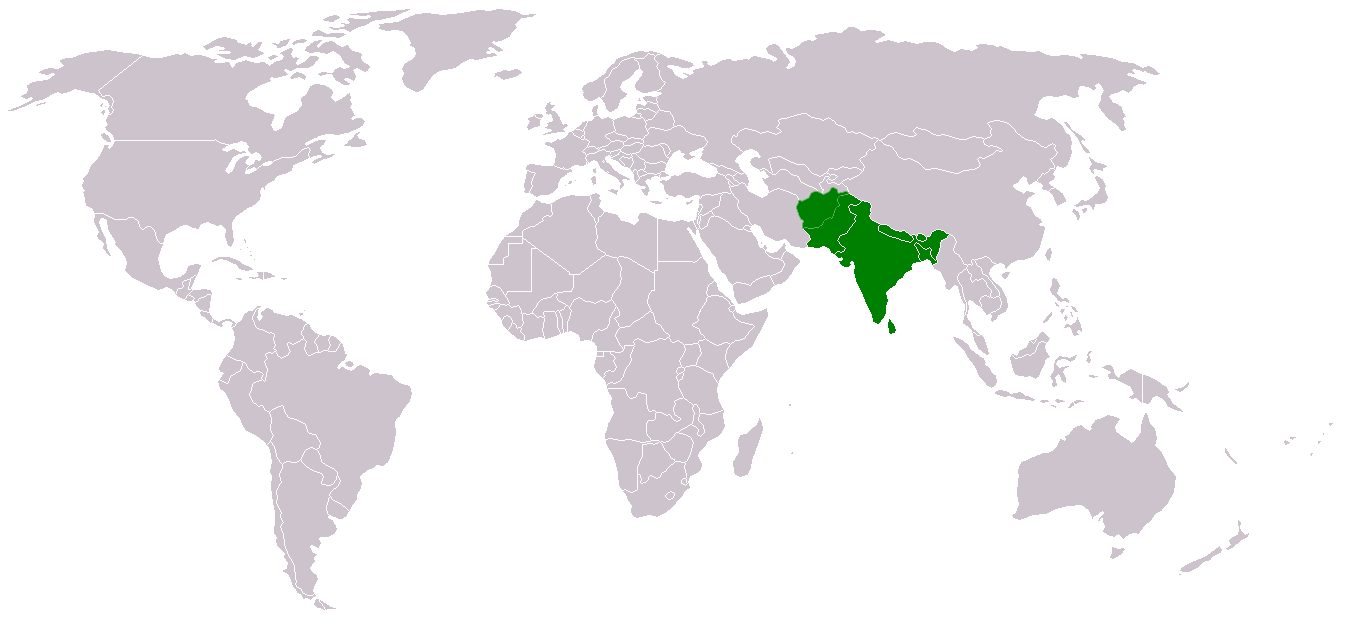 The SAR Renewable Energy Commitments are Significant
The SAR Renewable Energy Commitments are Significant

South Asia has an estimated 164 GW of RE power plants in planning or under construcion. A comparative analysis of the 8 SAR countries shows a diverse RE capacity reflective of the economic and natural resource diversity of the region. Read More
All of the SAR countries have a RE strategy/plan with aspirational targets and RE transition is a major part of SAR countries’ energy security strategies. However, specifics on how these numbers will be achieved and the investment required is less clear, and excluding India, progress is lagging in SAR. Read More
 The growing renewable energy sector is an opportunity for all, regardless of gender.
The growing renewable energy sector is an opportunity for all, regardless of gender.

Globally, IRENA estimates that the number of jobs in renewables could triple from 10.3 million in 2017 to nearly 29 million by 2050. India already has the fourth-largest number of renewable energy jobs globally, employing an estimated 719,000 people directly and indirectly in the sector, with almost half of the jobs coming from the hydro sector. With the immense investment in renewable energy and impending technological shift, comes the demand for new and diverse jobs that are not present in the traditional power sector. Read More
This new and agile industry environment provides a generational opportunity to develop and re-skill a more diverse and inclusive workforce - women need to be part of this transition. Engaging women will especially be important considering the daunting skills/capacity gap in SAR countries, many of whom face shortages or brain drain of skilled technical workers. One of the major barriers cited by power sector utilities is finding qualified technical women in the job pool. Indeed, estimate from India suggests more than doubling of the skill/manpower gap in Solar, Wind, and Small Hydro sectors from around .79 to 1.75 million workers between 2022-2030. Read More
Baseline Assessment | SCGJ Report | IRENA | USAID
What is the current status?
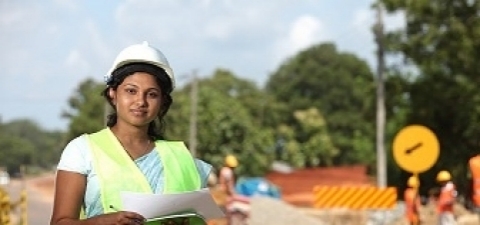 The reference to gender and women is generally absent from the national RE planning documents.
The reference to gender and women is generally absent from the national RE planning documents.

References to gender and women is generally absent from the national RE planning documents. Although every country has national gender equality plans and commitments, only Afghanistan and Nepal explicitly aknolwledge to the importance of including women in energy planning and RE projects in their national renewable energy/energy policy documents.
However, there is no concrete national policy guidance in any SAR country on how to integrate the gender agenda into the RE transition efforts, especially with regards to increasing female participation in formal RE jobs. This is emblematic of broader barriers for women in the overall energy sector in SAR (and the world) where women are characterized as potential stakeholders or beneficiaries, but seldom as agents of change.
Country Comparison | USAID | IRENA SDG7 | IRENA RE JOBS
 Female Representation is low in SAR RE sector
Female Representation is low in SAR RE sector

Stakeholders in the SAR RE sector can include public and private utilities, manufacturers, engineering/ environmental and social consulting firms, RE financiers, and software companies. A quick stocktaking of the RE sector finds that a majority of stakeholders are smaller private solar companies, with larger organizations being based in India. Read More
Indicative of the diverse nature of the surveyed RE organizations, the limited data finds that women staff account for 5-30% of the workforce. Another survey in India found that women made up 11% of employees in the rooftop solar sector. Female representation in Board and Senior Management levels is also low with either none or 1-2 directors out of total 5-10 in a company. Read More
SAR RE Data | IEA India Rooftop Solar
What can be done?
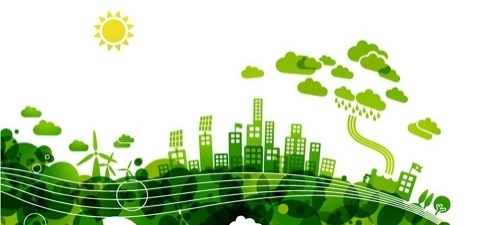 Developing “green” jobs skills in the talent pool
Developing “green” jobs skills in the talent pool

India is the only SAR country to have created a RE or “green jobs” skills development council and has also conducted a thorough skills gap assessment- although the gender dimension is absent and the industry data is not sex-disagreggated. Read More
A recent Brookings study reported that the transition to the clean energy economy will primarily involve 320 unique occupations spread across three major industrial sectors: clean energy production, energy efficiency, and environmental management. Overall, green jobs will require higher scientific knowledge and technical skills. Read More
Brookings Report | India RE Jobs FAQ
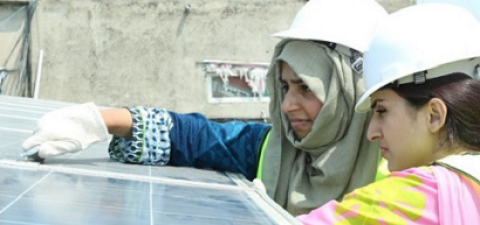 Suitable gender entry-points for RE sector jobs
Suitable gender entry-points for RE sector jobs

Focusing on jobs in the RE industry, the chart below provides a holistic overview of possible entry points for women within the Renewable Energy Value chain. The RE female job pool will consist of female students, unemployed females, and professional females from other sectors such as IT (and aerospace, materials, mechanical engineers, so on). Potential gender interventions can be at the project or the female student outreach, female professional awareness/recruitment, and gender friendly retention/development policies towards employing/interning women during the manufacturing, business enterprise management and project development phases of RE.
Conceptual Framework | WB SAR Project Examples | WePOWER Baseline Report | USAID Engendering Utilities Report
 Concluding Thoughts and Priority Areas for Future Works
Concluding Thoughts and Priority Areas for Future Works

To address the jobs gender gap (improve women’s representation) in a rapidly evolving RE sector, the WB will need to apply a holistic approach. An applicable framework is summarized in WePOWER framework under 5 pillars: i) STEM Education, ii) Recruitment, iii) Development, iv) Retention and iv) Policy, and Institutional Change. These pillars cover the all-important engagement with female students, women entrepreneurs, as well as a longer-term commitment to gender strategy/policies and institutional change. Read More
Improving the availability of RE specific training, increased visibility or role models and awareness of energy sector jobs can help to reduce the stigma in the sector (address cultural norms) and ensure a skilled supply of female workers in the RE job pool. To achieve this goal, the immediate priority areas for the WB should be to i) address the knowledge and data gaps through collecting baseline data and completing a gender-informed jobs need assessments for RE. Read More

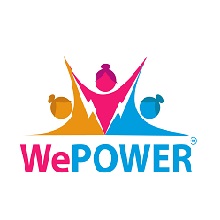





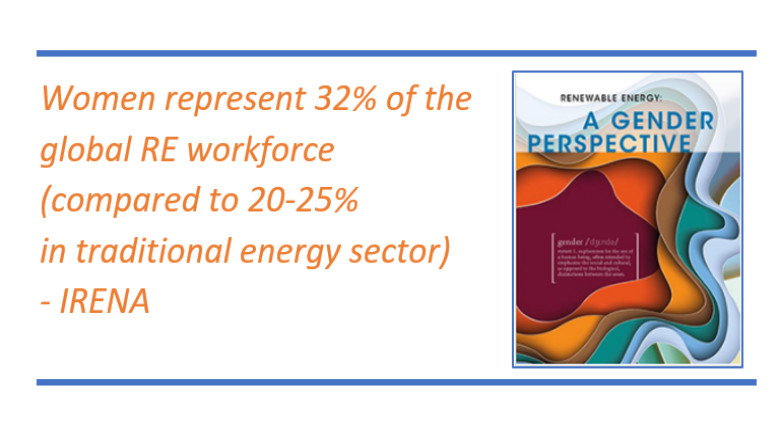
Mail sent to Community Managers, Please access the group once it get approved by Moderator.